Everyone traveling to Italy for the first time wants to have a memorable trip. Since there’s nothing like advice from a local, let me help you plan your first trip to Italy so you have a fantastic time in the country that I call home.
I still have to meet someone unwilling to travel to Italy soon or come back and discover more. And according to a recent poll by the Washington Post, Italy is the most popular travel destination in 2023!
Unquestionably, Italy is one of the most beautiful countries in the world. It boasts a unique historical heritage, with art and architecture spanning from ancient Egypt to contemporary times. Italy has the most diverse and tasty food, changing wildly from north to south. And while people traveling to Italy for the first time usually focus on Rome, Florence, and Venice, many charming towns are worth discovering.
Hopefully, after your first trip to Italy, you’ll fall in love with the country. Then, you might come back and decide to visit beautiful smaller cities like Ravenna, Mantua, and Brindisi or smaller towns like charming Brisighella. Italy is not only about cities, art, and culture, though. So you may want to discover beautiful landscapes, starting from the breathtaking Dolomites or the dramatic coast of the Cinque Terre. There are so many hidden gems in Italy and plenty of opportunities to travel off-the-beaten-path.
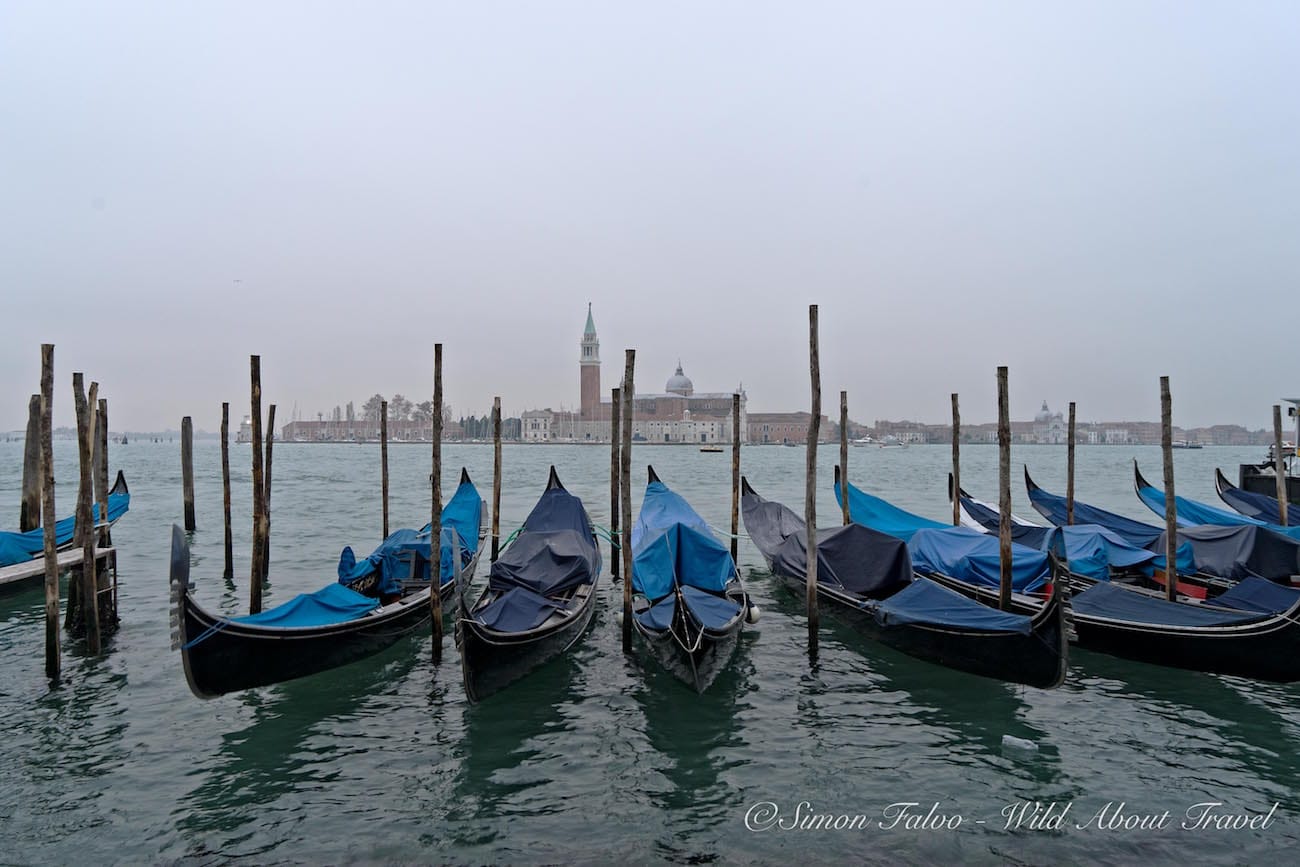
Venice and its iconic gondolas
I feel blessed for being born in Italy, surrounded by beauty and enjoying magnificent sceneries ranging from the snow-capped Alps up north to the olive groves in the south. Italy never fails to surprise.
Seasoned travelers will tell you that nothing beats advice and tips from a local. So, to help you get the best of your time if you’re traveling to Italy for the first time, I’m sharing my tips and things to know about Italy.
10 Italy travel tips for an unforgettable trip
1. Avoid the tourist traps
All over the world, places flooded with visitors are potential tourist traps, and Italy makes no exception. Avoiding them is often a matter of common sense, but sometimes it’s difficult also for us Italians, especially when visiting the most famous cities.
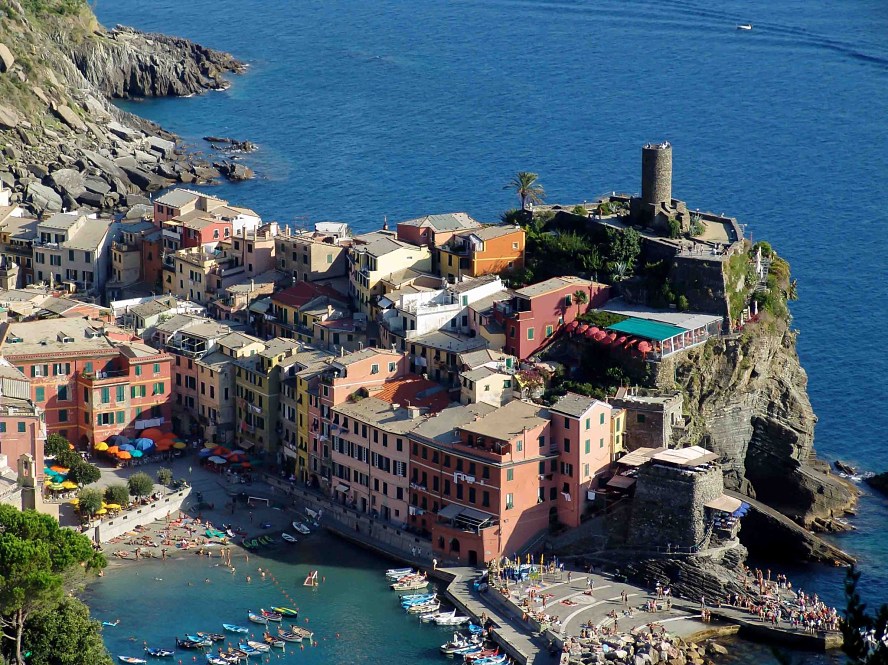
In general terms, there are a few rules that are likely to keep you off the tourist traps. If you’re visiting Italy for the first time, that will make your trip even more memorable.
- Skip cafes and restaurants close to the top Italian landmarks and all the places that attract hordes of visitors. Not only you won’t get the best food, but these places are often overpriced.
- Beware of restaurants displaying photos of the dishes and menus in several languages. They are obviously targeted at foreigners.
- As for Italian food, don’t rely too much on Tripadvisor, and learn how to read behind the lines. Above all, search for reviews from Italians.
- Ask for advice from locals through social networks and the people where you’re lodging, especially if you’re staying at smaller guesthouses.
- Read a good Italy travel guide to prepare for your trip.
Having said that, even seasoned travelers sometimes get caught in tourist traps. It’s good to be cautious but without stress.
2. Beware of additional charges in many cafes when having a drink or a bite sitting at a table
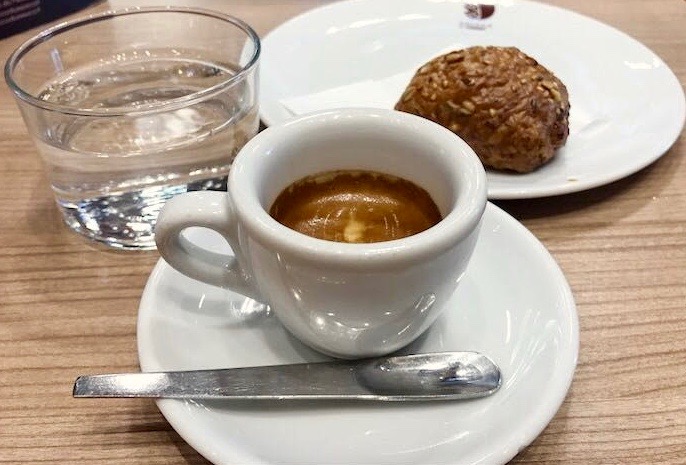
One of the first things to know when traveling to Italy for the first time is a strange and very annoying custom that I rarely experienced abroad. In many touristy areas, cafes frequently charge different prices, whether you’re having something standing at the counter or sitting at a table. Often, people on their first trip to Italy are unaware of these additional charges, which, more than once, lead to unpleasant surprises.
The “sitting at a table” charges range from a few cents (rarely) to ridiculously high amounts in places like Piazza San Marco in Venice or near the cathedral in Milan.
By law, cafes have to display the prices at the counter and sitting at a table, respectively. However, they are not always easy to spot. That’s why, before sitting, I advise you to always ask for a menu displaying the appropriate price so that you can decide whether you are willing to stay or look for a different place.
Better safe than sorry.
3. Only use regular taxis
Taking a ride with a regular, official taxi is what I would consider a matter of common sense, but you’d be surprised at how many tourists still get lured.
People may approach you at the airport or the train stations in the big cities by offering a private taxi service. Especially if it’s your first time in Italy, it might be tempting because it’s easy (no need to search for the taxi stand) or possibly faster (not having to queue). My advice, however, is NEVER, EVER to accept this kind of “offer.”
If you’re lucky, you’ll end up spending much more (those nonofficial cars don’t have a meter), and you can’t exclude that such a ride could lead to more regrettable circumstances. You won’t want your first time in Italy to be spoiled by a bad experience that is easy to avoid!
I’ve been a solo traveler for more than twenty years, and I am primarily in favor of independent travel. I’m not at all one getting easily worried or even scared. But I learned how to avoid potentially unpleasant, if not dangerous, situations.
If you don’t want to queue for a regular taxi, nor wish to take public transport, a good option is to book a private airport transfer from Rome Fiumicino or Milan Malpensa, and even a private water taxi in Venice, from the Marco Polo airport.
4. Get the most out of your time. Book in advance and skip the queues.
Unless you’re lucky and travel off-season, you’ll likely experience frustrating long queues at all the prominent Italian landmarks.
Queuing will make you waste precious time, which would be all the more a pity if you’re visiting Italy for the first time. It also means that in Florence, Rome, Venice, and even to admire the Cathedral in Milan, the chances are that you’ll be exhausted even before starting your visit.
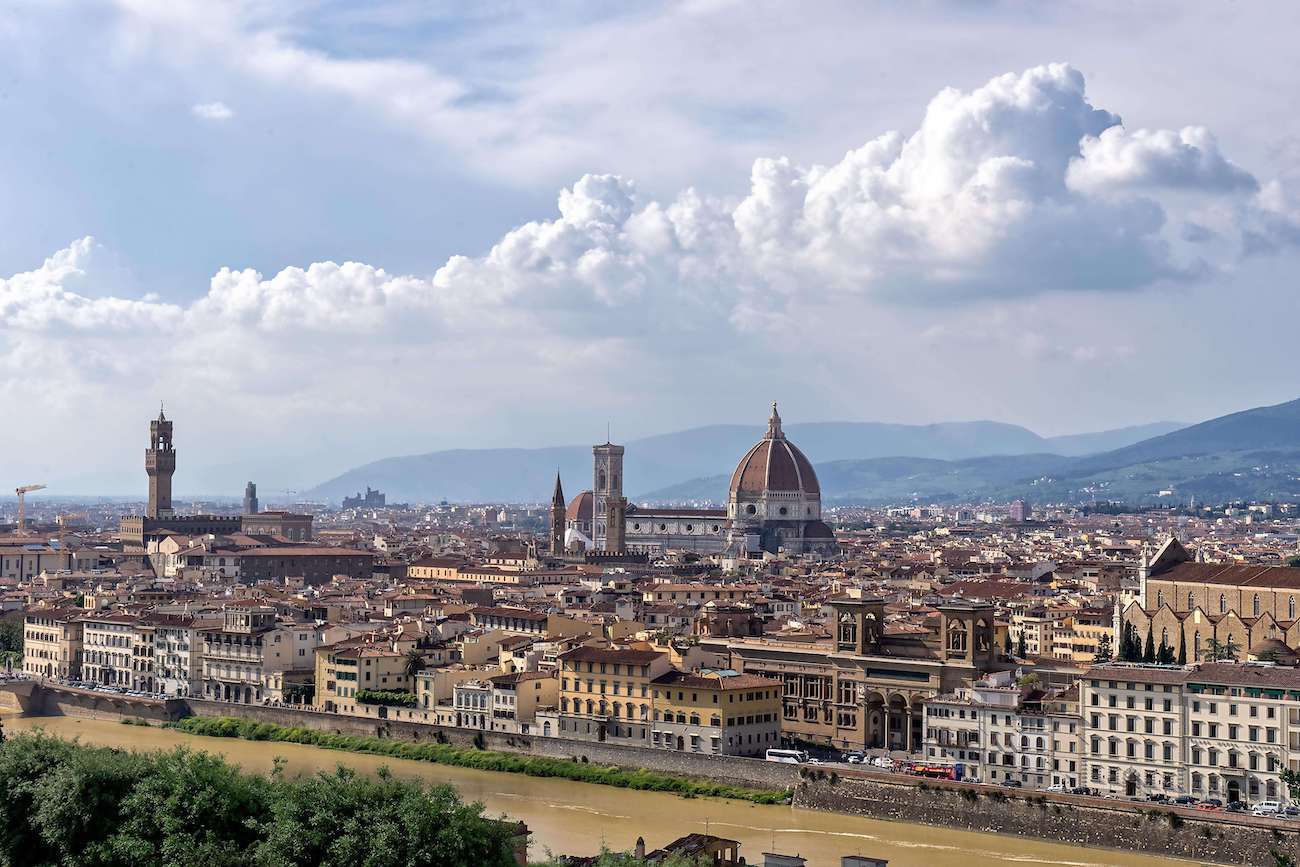
And there’s more.
The need to preserve some unique works of art – and the immense costs to restore them – led to the limitation of the number of people allowed access at the same time. That happens in Milan if you want to admire Leonardo da Vinci’s Last Supper, whose ticket you need to buy with a large advance. The same rule applies in Padua to visit the magnificent Giotto’s frescoes in the Cappella degli Scrovegni and at other fragile sites.
Therefore, if you wish to visit these extraordinary creations by world-famous artists (and believe me, they are some of the most beautiful sights you’ll ever get in your life), you need to plan and book in advance.
That’s why planning a trip to Italy needs some time to get beforehand an idea of the Italian landmarks you don’t want to miss. Draw your Italy bucket list and book in advance. Or buy skip-the-line tickets before you leave.
People on their first trip to Italy usually want to discover the country’s main attractions. For that reason, I strongly recommend you buy Skip the Line tickets to the most famous landmarks in Italy. Here are a few of Italy’s must-sees where you’ll want to avoid the queue or maybe also book a guided visit.
Some of Italy’s top attractions where early booking and Skip the Line Tickets are advised
5. Save money on public transport
Italy has the best high-speed trains in Europe, with very frequent connections between Milan, Florence, Rome, and Naples. For example, it takes as little as three hours from Milan to Rome. The bullet train between Florence and Rome takes less than one and a half hours. Finally, the journey from Milan to Florence is less than two hours. If you only visit the main cities, high-speed trains are the best way to tour Italy.
Bullet trains in Italy can be costly, though, especially if you buy your ticket at the last minute. As soon as you have set your itinerary, I suggest you buy your journey on the Omio website.
Local transport can also be quite expensive, first and foremost in Venice, where your best bet is to buy a 24, 48, or 72-hour pass. The main cities all have offers for public transport tickets for visitors. Finding them can be tricky, though. My advice is to browse through the websites of the companies managing local public transportation and look at the online pages of the tourism boards.
6. If possible, plan your trip in the off-season
Italy is a year-round destination, and while you’ll hardly ever go wrong, there are more enjoyable times of the year.
The best time to visit Italy depends on the areas and what you’re most interested in doing.
Generally speaking, try planning a trip to Italy in the off-season. The shoulder season – Spring and Autumn – is perfect because it’s often less crowded, and the temperature is pleasant. There are, however, a few things you might want to take into account when you’re about to plan your trip to Italy.
You should possibly avoid traveling to Southern Italy in late June, July, and August because it can get scorching. Also, seaside towns and beach resorts are incredibly crowded in July and August, when most Italians go on holiday. The same happens in the most beautiful mountain resorts in Italy, above all in the Dolomites. Conversely, August is a great time to visit cities like Milan, Florence, and Rome. Many of the locals are off on vacation, and there’s less traffic, but get ready for the heat!
If you want to beat the crowds in Venice, you should consider visiting Venice in November, December, and January. If you’re lucky to have fog, you’ll discover how beautiful it can be at that time of the year.
Last but not least, shopping lovers should consider a trip to Italy in January or July during Sales. That’s the time of the year when you can find fantastic bargains.
7. Italy is a safe country. Still, by the main tourist attractions, watch out for petty crimes and foul play
Italy is a safe and welcoming country. However, like everywhere globally, you might incur petty crime and foul play in big cities and by the most sought-after attractions.
Here are a few (common sense) tips for traveling to Italy, especially if it’s your first Italian trip.
In public transport, always keep your handbag or backpack in front of you to counter possible pickpockets. Also, never keep your wallet in the back pocket of your trousers. Instead, store it in your bag, possibly in a zipped pocket not within easy reach. Train stations and famous landmarks in Italy are both places where tourists could become potential victims. Thus, be cautious when approached by people offering to help. While most of them will be genuinely generous, some might be trying to rob or scam you. Finally, don’t leave your belongings unattended in public spaces. And better keep your bag on your lap or between your feet.
8. Discover the diversity of Italian regional food and wine and taste local products and dishes
Few countries in the world offer such a variety of dishes as Italy. From north to south, region after region, you’ll discover different specialties based on local, typical ingredients and products.
You’ll find out that each area has something special and unique related to geography, even within a region. Mostly meat inland and fish along the coastline. Not to mention the hundreds of recipes to cook pasta, from hard wheat pasta to homemade egg pasta. Tasting food (and wine) is definitely one of Italy’s must-dos.
It’s hard to tell which region is best. In each one of them, you can have the most delicious dishes and taste excellent local products.
I love Emilia-Romagna, which I consider heaven for gourmets. The region is home to the Italian Food Valley, and offer some of the best foodies experiences like discovering the secrets of Traditional Balsamic Vinegar, or the fascinating production of Parmigiano Reggiano. Apulia is a region that boasts delicious specialties and top-quality food. As for Lombardy, not long ago I discovered Moscato di Scanzo, a meditation wine and unforgettable nectar produced near Bergamo.
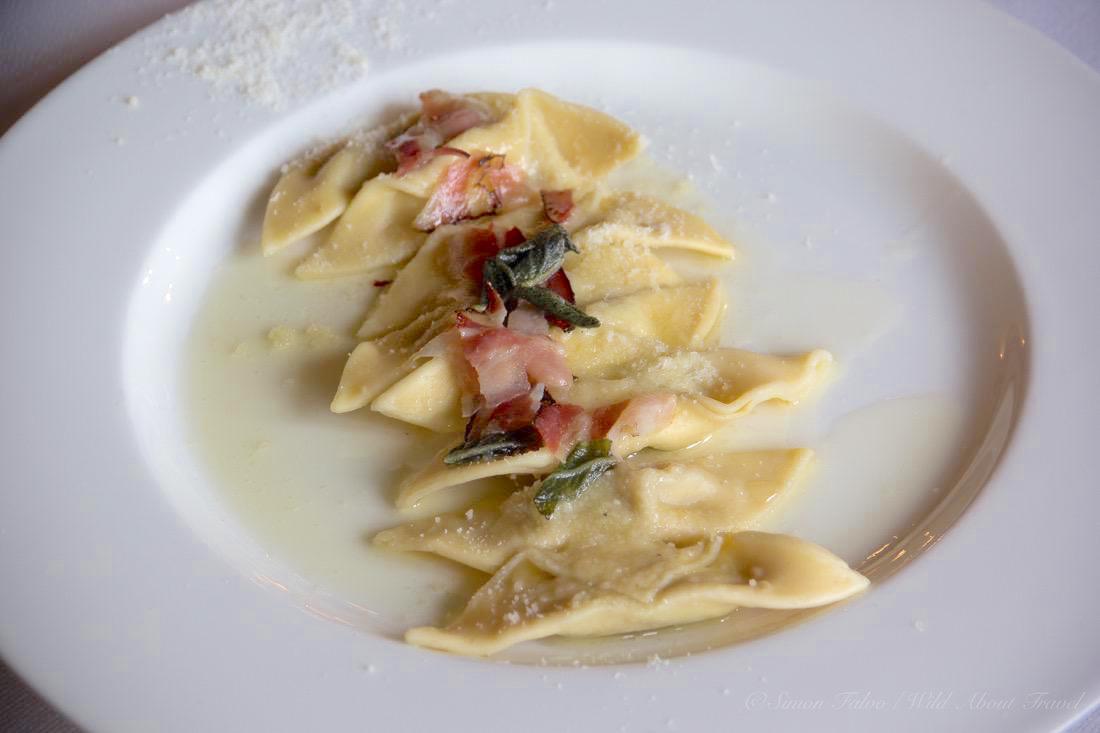
9. Have pizza and cappuccino like a local
The authentic Italian pizza is simple and prepared with only a few ingredients: mozzarella (or buffalo mozzarella), tomatoes, and basil. With pizza Margherita, you can hardly get more classic. Other authentic pizza includes Napoletana (same as Margherita, with added anchovies), Marinara (the simplest one, with just tomato and a bit of garlic and oil, perfect for people with lactose intolerance).
The semi-classic pizzas include Regina Margherita (Margherita with buffalo mozzarella and raw cherry tomatoes), 4 Stagioni (meaning four seasons), usually four corners, each with different toppings: mushrooms, ham, artichokes, and tomatoes.
As for cappuccino, here’s one of the things not to do in Italy if you want to be like a local: ordering a cappuccino in the afternoon or drinking one with your meal.
Read also: Fun Facts about Italy
10. Aside from the famous landmarks in Italy, discover the daily life
Visiting the famous landmarks if it’s your first trip to Italy is unquestionably a must. However, by the main attractions, you’re likely to see more tourists than locals.
To get a little more of Italian daily life, though, you must venture where the residents are. There are several ways to get mingle with locals.
– Take public transport
– Go to local markets
– Have a stroll near a University
– Pop in a supermarket
– Go where people work: look for fishers by the sea or farmers in the countryside
– Take a walk in residential areas
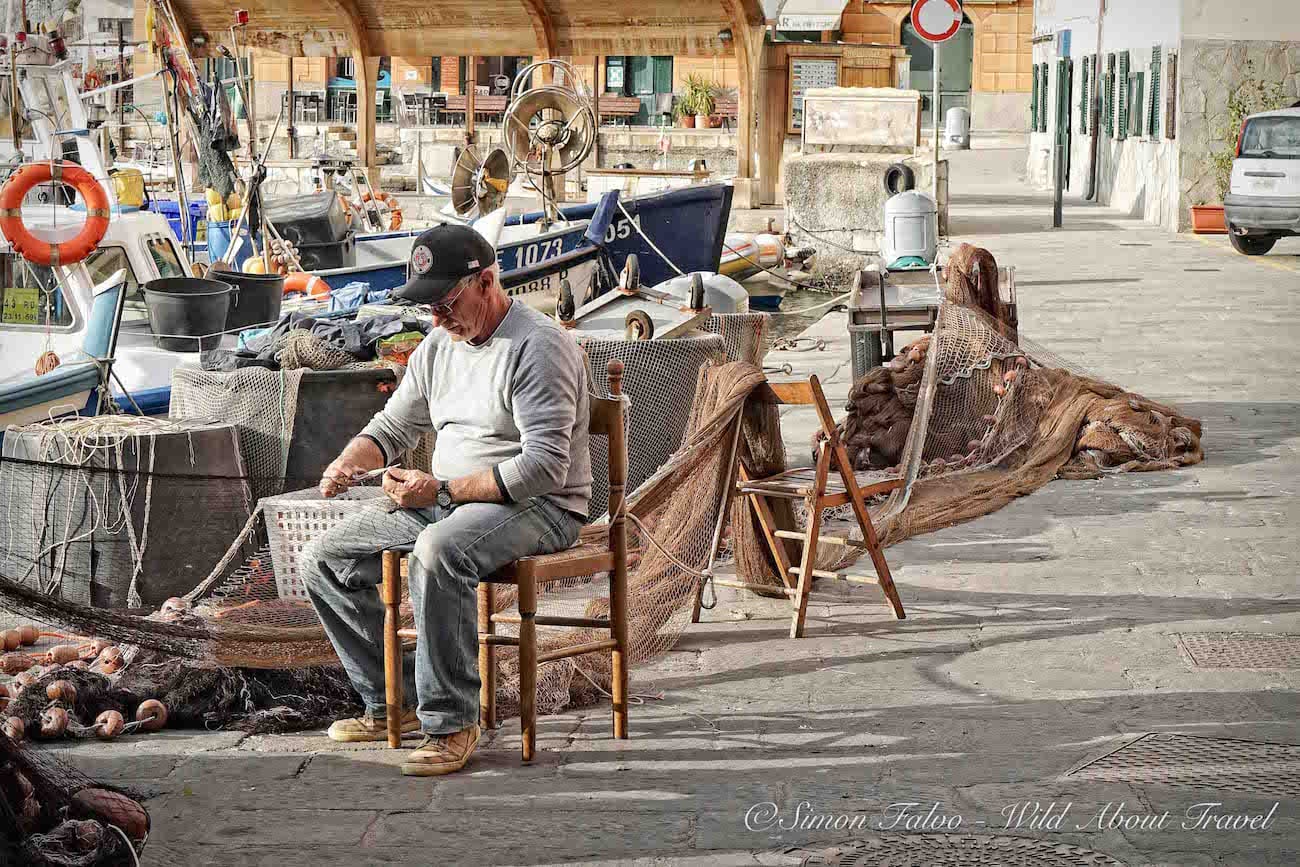
_______
Disclaimer: This article contains a few affiliate links. I picked them carefully to provide readers with value-added services. And while the price for you is the same, I earn a small commission.
Pin for later!
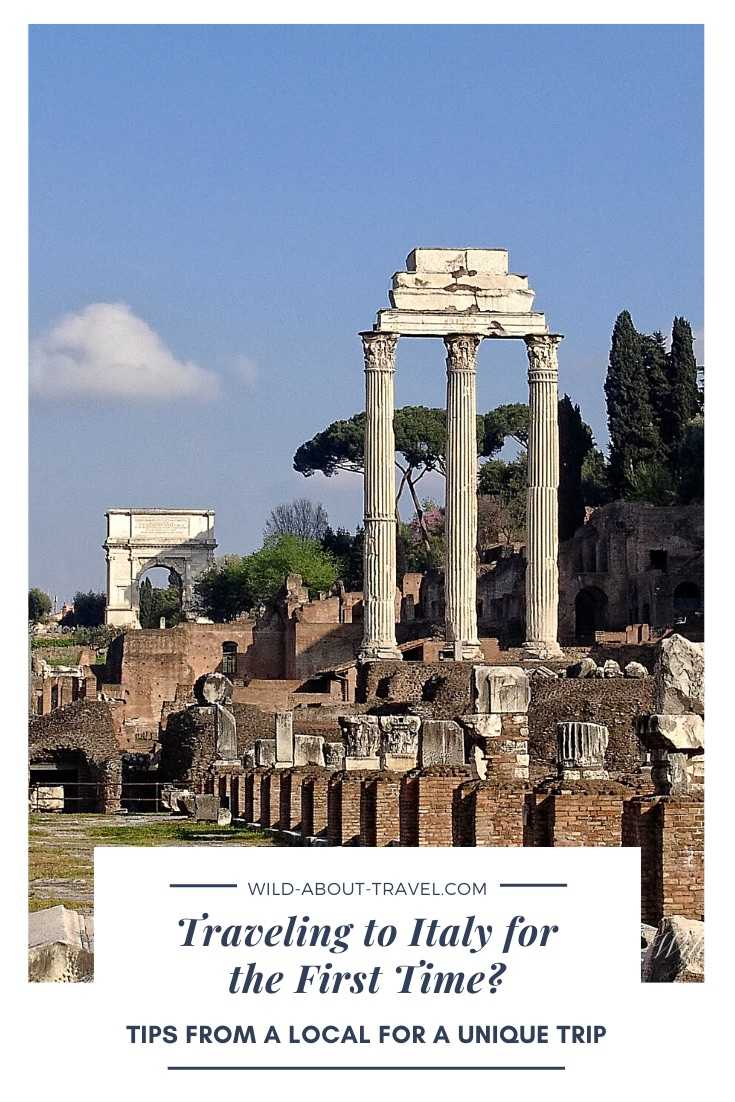
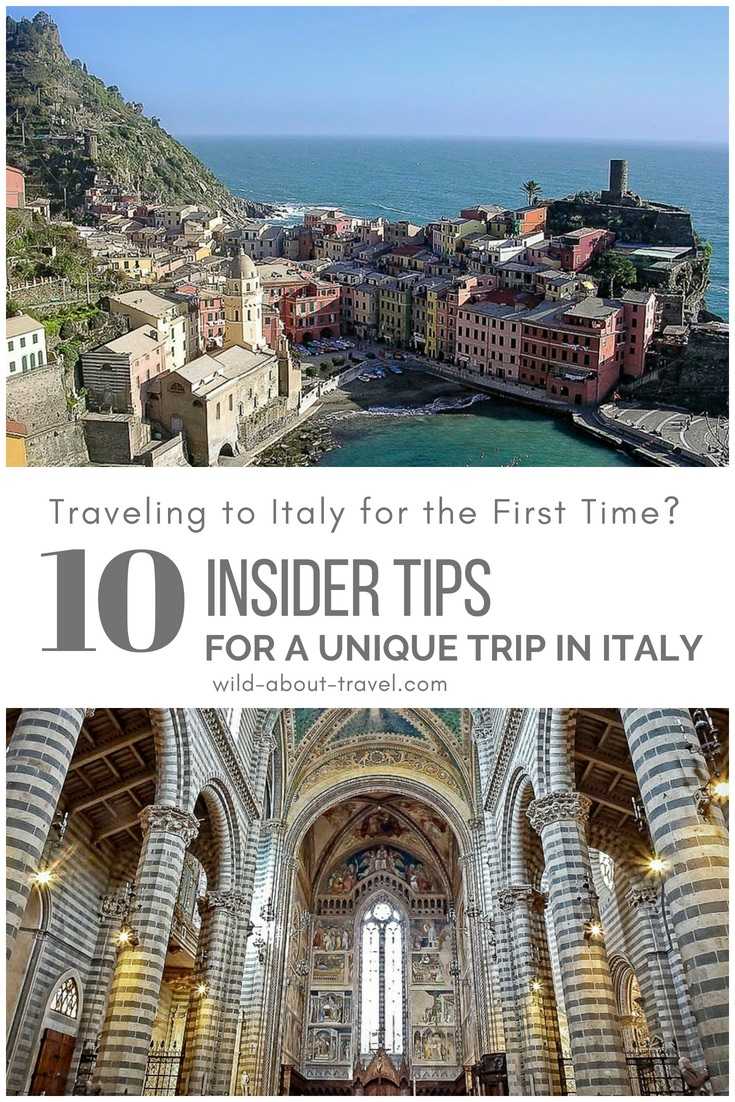

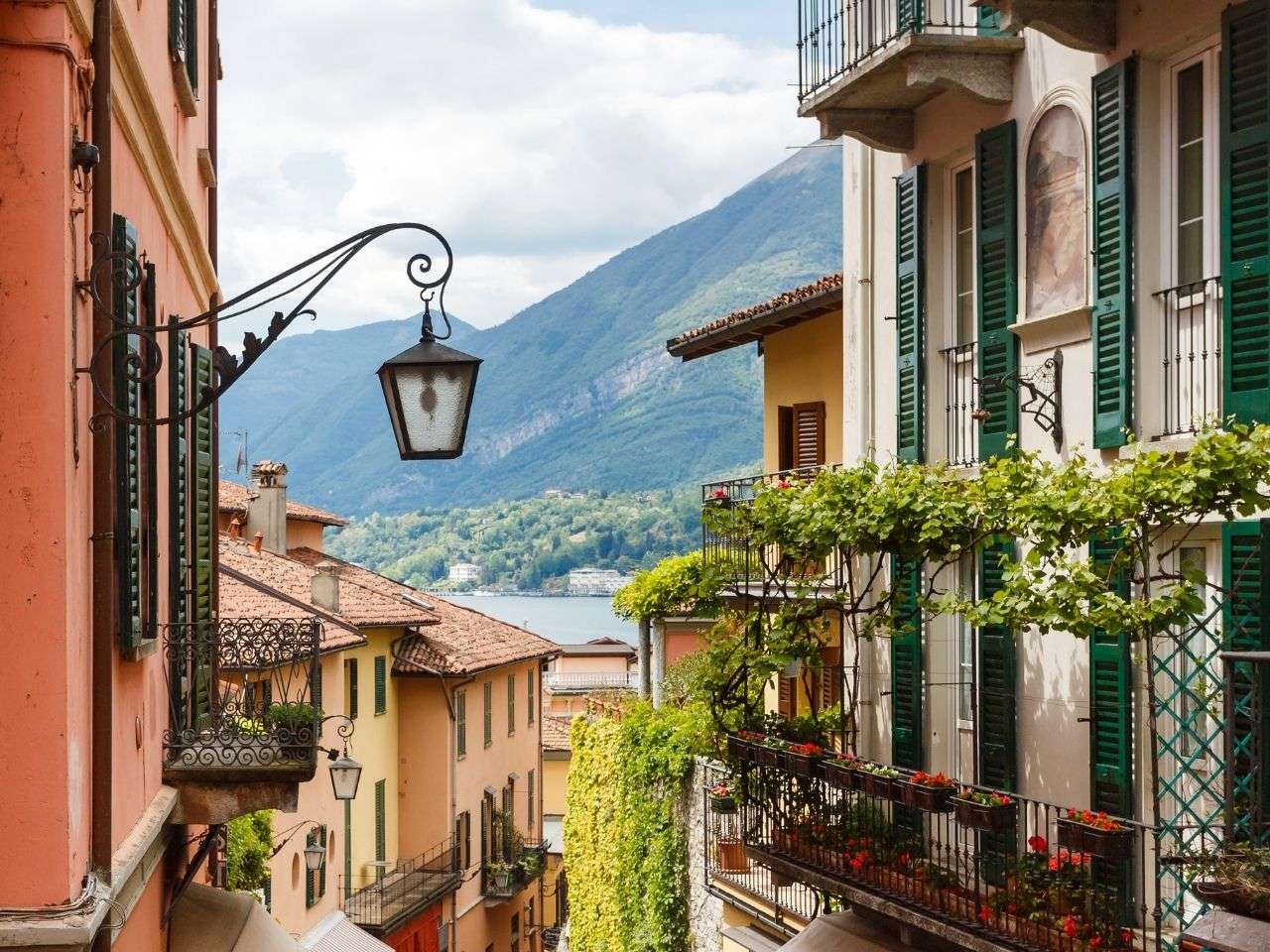


You got some great pictures here! You are exactly right when talking about the Italian cappuccino, it doesn’t even compare to those from any other place in the world. Thanks For sharing Such and informative blog